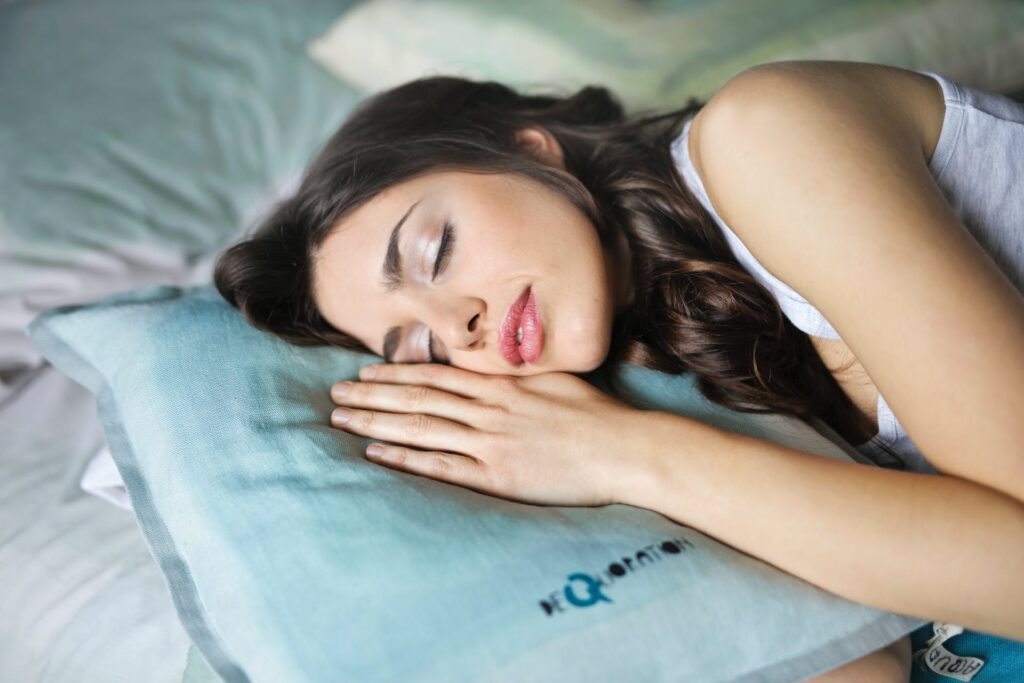Many women are questioning whether a Keto diet makes sense during the menopausal transition. They’re debating whether a low carb diet will assist with hot flashes, sleeplessness, mood swings, weight gain, and other problems associated with this challenging process.
However, while there is some study on Keto for postmenopausal women [1], there isn’t much on Keto with menopause. However, there are hints in the literature.
The hints point to the possible benefits and hazards of eating Keto during menopause. It’s not as simple as black and white. The human body is intricate, and menopause adds to the confusion.
Let’s start with the basics of menopause and then see how Keto fits in. Continue reading.
What Is Menopause?
The cessation of a woman’s menstrual cycle for at least 12 months is classified as menopause. It is a natural event that occurs as part of the aging process.
Most women reach menopause in their late 40s or early 50s, although approximately 5% reach menopause between the ages of 40 and 45, and about 1% before the age of 40. [1]
When someone says they’re “going through menopause,” they’re talking about the interval between premenopause and postmenopause. [2] Perimenopause refers to this transition period, typically lasting 5 to 10 years.
When the ovaries begin to run out of eggs, this signals the start of this shift.
When the ovaries run out of eggs, they stop responding to a hormone called follicle-stimulating hormone (FSH), preventing the production of luteinizing hormone (LH) and the release of an egg (ovulation) each month. As a result, estrogen levels drop, and menstruation stops. [3]
But it’s not a toggle switch. The shift is often slow and frequently rough.
What Are the Symptoms of Menopause?
What perimenopausal symptoms should a woman expect? Let’s examine what the statistics show. [4]
During Perimenopause, around 75% of women develop vasomotor symptoms. Hot flushes, nocturnal sweats, headaches, and palpitations are some symptoms.
Urogenital symptoms such as reduced libido, sexual dysfunction, vaginal dryness, and increased urgency (to urinate) affect around 60% of women.
In addition, around 45% of women report psychogenic symptoms such as sleeplessness, mood swings, anxiety, irritability, lack of confidence, and self-esteem.
Weight gain, particularly around the midsection, is another prevalent symptom. This is the symptom that Keto is greatest at treating.
Keto for Menopause: Potential Benefits
Is the Keto diet suitable for menopausal women? That is not yet evident, but here are some potential advantages.
#1: Weight loss
Many women going through menopause struggle to lose weight. Or they put on weight.
Why? One explanation for this is that ghrelin, a hunger hormone, rises during Perimenopause. [5] More hunger, more bingeing.
This is where Keto comes into play. Because a Keto diet lowers ghrelin levels, it may aid menopausal women in weight control and loss.[6]
Keto may also help with weight loss after menopause. After 25 days of a ketogenic diet, obese postmenopausal women dropped an average of 20 pounds, according to one study. [7]
#2: Hormonal health
The decrease in estrogen during Perimenopause not only interrupts menstruation. It also impairs insulin function. [8]
Insulin is a hormone that affects blood sugar and fat-burning ability. Fat loss might be more difficult due to increased inflammatory signals when insulin action is impaired (a condition known as insulin resistance). [9] Unfortunately, this may add to menopause-related weight gain.
Though it has not been examined in menopausal women, the Keto diet has been proven to enhance insulin function in women with polycystic ovarian syndrome (PCOS) [10][11], among other groups. [12]
#3: Inflammation
Hot flashes are one of the most well-known menopausal symptoms. But what is the source of them?
Inflammation is most likely to blame. Researchers discovered that inflammatory markers are increased in perimenopausal women experiencing hot flashes and nocturnal sweats. [13]
Keto may be beneficial by decreasing inflammatory processes such as the NLRP3 inflammasome. [14] More study is required, but it’s an intriguing notion to consider.
Keto for Menopause: Potential Risks
A little caveat before delving into the possible hazards of Keto for menopause: The Keto diet is not suitable for everyone. Carbohydrate restriction should be avoided by those who are underweight, have a history of eating problems, youngsters, and pregnant or nursing women.
Those who use Keto to manage a chronic ailment (such as type 2 diabetes or cancer) should do it under medical supervision.
Having stated that, here are some additional particular risks:
#1: Keto flu
When first starting Keto, many people endure headaches, mental fog, muscular cramps, poor energy, diarrhea, or sleeplessness. Keto flu is a term used to describe these symptoms.
Perimenopause is difficult enough without the addition of Keto flu symptoms. As a result, menopausal women may wish to avoid Keto. (Note: You’ll soon learn helpful techniques for avoiding Keto flu.)
#2: May raise cholesterol levels
Falling estrogen causes blood arteries to tighten and LDL cholesterol levels to increase around menopause. Both reflect an increased risk of heart disease. [15]
A Keto diet may elevate LDL cholesterol levels as well. In one tiny trial, a Keto diet increased LDL cholesterol by 39% in young, healthy women. [16]
Why? According to researchers, the increase in dietary saturated fat is to blame.
However, many big evaluations have revealed no relationship between saturated fat consumption and heart disease, indicating that the subject is far from established. [17][18]
Tips for Going Keto During Menopause
If you decide to go Keto during menopause, keep the following points in mind to make the transition easier:
- Take electrolytes. Electrolyte deficits are frequently the cause of keto flu symptoms.
- Eat non-starchy vegetables. Constipation, a typical Keto flu symptom, may be avoided by eating adequate fiber.
- Reduce saturated fat. If your LDL cholesterol rises while on Keto, try moving your fat calories to monounsaturated fats such as olive oil, avocados, and almonds.
- Get enough sleep. 7 to 9 hours of sleep is recommended for focus, fat-burning capability, hunger management, mood, and many other benefits. [19][20][21]

- Manage stress. Stress raises not only irritation but also the fat-storage hormone cortisol. [22]
- Exercise. In most people, including menopausal women, a regular exercise plan reduces illness risk and enhances quality of life. [23]
- Be realistic with weight loss goals. Keto is a way of life, not a 14-day diet. Please be patient.
One final point. Keto is not the most excellent menopausal diet for every woman, but it’s worth trying. Follow the advice above, listen to your body, and (if feasible) track your bloodwork, and you’ll be well on your way to success.







0 Comments